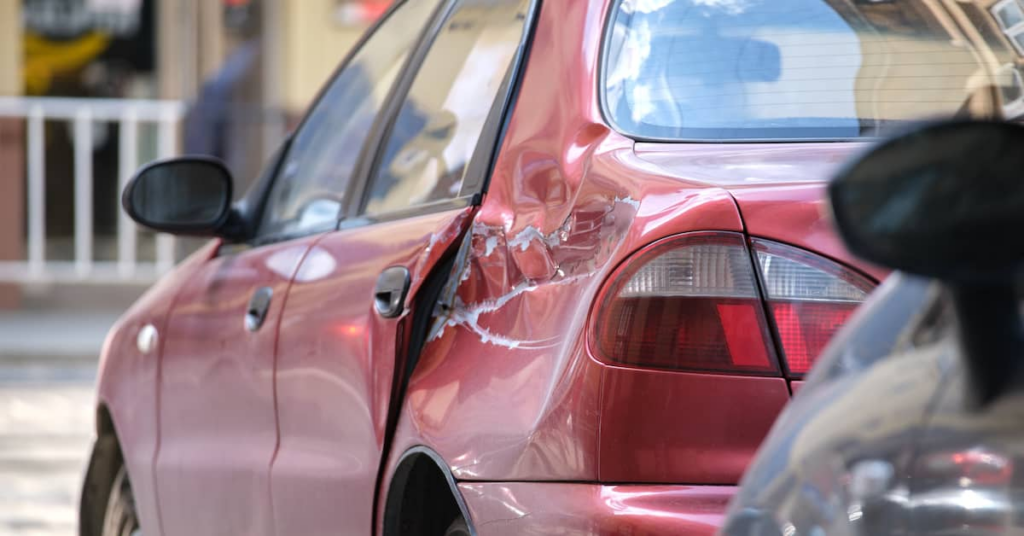
A hit-and-run claim is among the most difficult types of accident cases. Understandably, the victims of hit-and-run accidents often feel anger and frustration that the driver fled the scene. It can also be challenging to bring a claim for injuries and damages after a hit and run.
The Flood Law Firm can help you navigate the aftermath of a hit-and-run accident. We deal with the insurance companies on your behalf and explore all avenues for obtaining the compensation you deserve.
Please call The Flood Law Firm at (860) 346-2695 today for a FREE consultation. Our lawyers handle hit-and-run claims throughout Connecticut from offices in Middletown, Danbury, Waterbury, and Bridgeport.
Does Insurance Cover a Hit and Run?
When another driver is at fault for an accident, that driver’s liability insurance covers the damages for bodily injury sustained by those who were harmed in the crash. In the event of a hit and run, however, the driver is unknown. This deprives the victim(s) of the crash to fair compensation via the driver’s liability insurance.
Instead, you will need to turn to your own insurance coverage. There are several different policies that can cover the costs of a hit-and-run accident:
UM/UIM Insurance
Although it generally covers accidents in which the at-fault driver either has no insurance or does not have sufficient insurance to cover your losses, uninsured/underinsured motorist insurance (also known as UM/UIM insurance) also covers hit and runs. The insurance company treats the driver in a hit and run as though he or she is an uninsured motorist.
Your UM/UIM policy can compensate you for the damages usually covered by an at-fault driver’s liability insurance, including:
- Medical expenses
- Lost wages
- The loss of future income
- Out-of-pocket expenses
- Pain and suffering
Drivers in Connecticut are required to carry UM/UIM insurance (minimum coverage of $25,000 per person and $50,000 per accident). If you have UM/UIM insurance as required by law, you are covered if you are hurt in a hit-and-run accident.
Collision Coverage
Collision coverage can help pay for the damage to your vehicle after an accident. This includes the cost of repairs or replacement of your vehicle.
Medical Payments Coverage
Finally, medical payments (or med pay) insurance covers the cost of medical care for the injuries you sustain in the accident. This is optional insurance coverage you can purchase as part of your auto policy.
How Often Do Hit and Runs Get Caught?
The rate of arrests for a hit-and-run accident is not encouraging. Overall, only about 10% of these cases are ultimately solved.
Prosecution is unlikely because the hit-and-run driver is typically not caught. However, although it may not be possible for the driver to be brought to justice, your car insurance can help to cover your losses.
Will Insurance Compensate Me Fairly After a Hit-and-Run Accident?
It is important to know upfront that insurance companies – even “your” insurance company – do not have your best interest in mind. Even though you pay your premiums faithfully, there is no guarantee that the insurer will treat you fairly when you file a claim for UM/UIM insurance and/or other types of coverage.
As a rule, insurance companies will offer to settle claims for less than they are worth. Many claimants make the mistake of accepting a low settlement just so they have some money to cover their expenses. Payment of the claim may also be unreasonably delayed, depriving you of the financial resources you need to recover from the accident.
Ultimately, it is of the utmost importance to have a knowledgeable lawyer handle the hit-and-run claim on your behalf. An attorney can negotiate with your insurance company and potentially reach a higher settlement than you could obtain on your own. If the insurer doesn’t deal with you fairly, your attorney can file a lawsuit and (if necessary) take the case to court.
Furthermore, an experienced car accident lawyer will have the knowledge and resources to investigate the hit and run. It may be possible for your attorney to identify the hit-and-run driver, in which case you can bring a claim against the driver’s liability insurance.
Frequently Asked Questions
Q1: How is a hit and run covered by insurance?
A: Hit-and-run accidents are typically covered by your own car insurance policy through uninsured motorist coverage, collision coverage, and medical payments coverage. If you're a victim of a hit and run, your insurance company may treat the incident as if you were hit by an uninsured driver.
Q2: What types of car insurance coverage help in a hit-and-run accident?
A: Several types of coverage can help:
- Uninsured motorist coverage: Helps pay for medical expenses and lost wages.
- Collision coverage: Covers damage to your vehicle.
- Medical payments coverage (Med Pay): Helps with medical bills regardless of fault.
- Personal Injury Protection (PIP): Covers medical expenses, lost wages, and sometimes child care costs.
Q3: Will my insurance rates go up if I file a hit-and-run claim?
A: It depends on your insurance provider and policy. Some companies may raise rates due to claim frequency, while others may not if you're not at fault. Check with your insurance provider for specifics.
Q4: What if I only have liability coverage? Will insurance cover a hit and run?
A: Liability coverage helps pay for damage you cause to others, not damage to your own vehicle. In a hit-and-run, your liability coverage won't apply. You'd need collision coverage or uninsured motorist property damage coverage to cover your car repairs.
Q5: What should I do immediately after a hit-and-run accident?
A: First, ensure your safety and seek medical attention if needed. Then:
- Call the police and file a report.
- Gather evidence (photos, witness information).
- Note any details about the other driver or vehicle.
- Contact your insurance provider.
Q6: How do I file a hit-and-run insurance claim?
A: Contact your insurance company as soon as possible. Provide them with the police report number, any evidence you've gathered, and a detailed account of the incident. They'll guide you through their specific claim process.
Q7: What if the hit-and-run driver is caught after I've filed a claim with my insurance?
A: Inform your insurance company immediately. You may be able to file a claim against the at-fault driver's liability insurance instead, potentially recovering your deductible.
Q8: Are there coverage limits for hit-and-run accidents?
A: Yes, your coverage limits will be specified in your auto insurance policy. These limits apply to hit-and-run accidents just as they would to any other type of accident.
Q9: Is medical payments coverage or PIP coverage required?
A: Requirements vary by state. In some states, PIP is mandatory, while in others, it's optional coverage. Med Pay is typically optional. Check your state's laws or consult with your insurance provider.
Q10: What if the damage from the hit and run is less than my deductible amount?
A: If the cost of repairs is less than your deductible, you'll need to pay out of pocket. In this case, it may not be worth filing a claim, as it could potentially affect your insurance rates.
Q11: Can I still file a claim if I didn't get the hit-and-run driver's license plate number?
A: Yes, you can still file a claim even without the other driver's information. Your uninsured motorist coverage or collision coverage should still apply. However, having the license plate number can help in identifying the responsible party.
Q12: How long do I have to file a hit-and-run claim?
A: The time limit varies by state and insurance company. It's best to file as soon as possible to ensure you don't exceed any deadlines. Check your policy or contact your insurance provider for specific time limits.
Remember, the specifics of coverage and claims processes can vary based on your insurance provider, policy, and state laws. Always consult with your insurance company or a legal professional for advice tailored to your specific situation.
Get Help with Your Hit-and-Run Claim
The consequences of a hit-and-run accident can be immense. Victims may suffer serious injuries and even the death of a loved one in the crash.
Drivers who evade responsibility for an accident should be held responsible. Unfortunately, this is not always possible. If the driver flees the scene of the accident, it is important to know how your insurance will handle the claim.
The Flood Law Firm is well-versed in many types of car accident claims, including hit-and-run accidents. We understand the unique challenges of these cases, and we will identify all available options for recovering the compensation you deserve.
